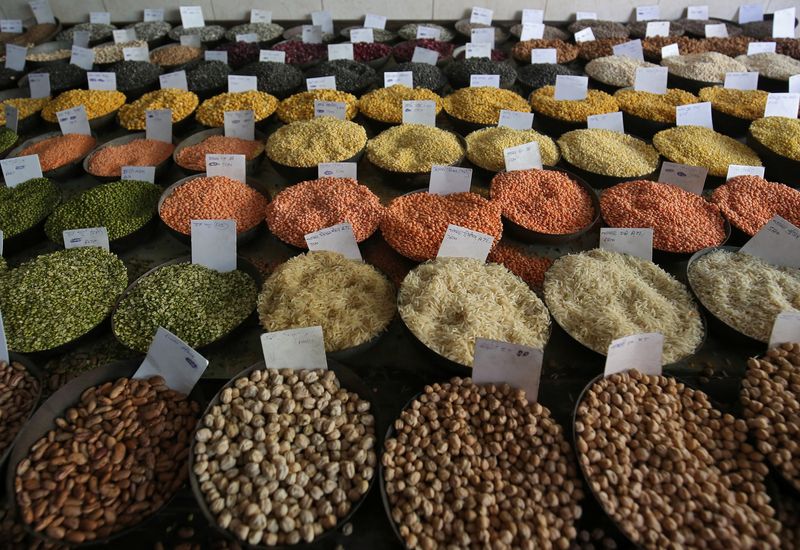By Milounee Purohit and Anant Chandak
BENGALURU (Reuters) - India's inflation likely snapped a four-month decline in June as food prices surged, a Reuters poll of economists found, making a cut in interest rates unlikely any time soon, while the Reserve Bank of India is also expected to resist pressure to raise rates.
"We believe the RBI will tolerate a supply-side driven rise in food inflation as long as core price pressures continue to ebb within the bank's tolerance band," said Alexandra Hermann, senior economist at Oxford Economics.
Uneven monsoon rains have damaged crops of some perishable foods and hindered the movement of goods, resulting in shortages of basic ingredients for Indian cooking, such as tomatoes, chillies and onions.
The pressure on food prices is likely to persist over the coming months, making it less likely that inflation would return to the central bank's 4% target in the near term.
The July 3-10 Reuters poll of 55 economists predicted consumer price index (CPI) inflation rose at an annual pace of 4.58% in June, slightly faster than the 4.25% recorded in May. Forecasts ranged from 4.10% to 4.80%, with over 90% expecting inflation to be higher than May. "The inflation print is likely to be impacted by the seasonality in vegetable prices, especially for tomatoes and onions," said Dipanwita Mazumdar, economist at Bank of Baroda.
"Erratic rains and heatwave conditions have also impacted production of a few crops for which prices have seen an uptrend of late."

Prices of food items, which account for around half of the CPI basket, especially kitchen staples, have almost tripled in the past month, hitting low income households hardest. Inflation in Asia's third largest economy is expected to average 5.0% in the fiscal year ending on March 31, 2024, and the following year, a separate Reuters poll showed. [ECILT/IN] Another Reuters poll in late May forecast that the RBI would leave interest rates unchanged until the end of this year, even as other major global central banks were expected to continue tightening monetary policy to quell sustained price pressures.
The survey also showed wholesale price inflation, the change in producer prices, likely declined 3.60% year-on-year in June, after a 3.48% decline in May.